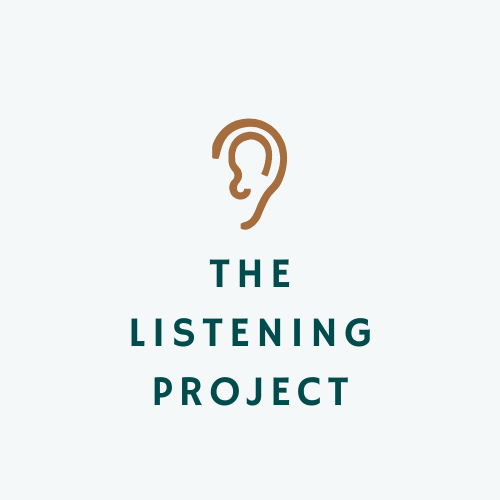Now in my mid-60s, I’ve come to realize how tiring life lived with an ego is. Which means, theoretically, that we’re all tired, we humans. With these outsized brains, and the consciousness that they carry, it seems that we constantly are living in a state of anxiety and fear, constantly comparing ourselves to others, trying to determine if we measure up to some standard or standards that we might have difficulty defining closely, but that we are captive to nonetheless.
In recent years I’ve been working to still the ego in me. The listening I’ve done in the context of this project has helped with this. Our ego moves us to counter other people with our own stories when they are sharing theirs. They tell us about their accomplishments, their travels, their tragedies, and we are moved to do the same in turn. I understand that this is, in some sense, a natural impulse, but I don’t think it is a necessary thing, or necessarily healthy. To me, it feels like quieting the ego is akin to taking a deep breath and not rushing the exhalation, but letting that air out slowly and fully, in an open-ended way.
When I am listening to someone who has joined me, I am there for them. While it was harder to do that well at first, now it is not so hard, even if it isn’t always easy. Indeed, there are times when it feels almost as if I’m not there, or at least the part of me that might want to relate what this person is saying to myself, is absent. I can listen without ego-driven self-reference, without judgment, without need to interrupt or plan for my response, because I understand that my purpose in being present is to be present for them, and how could the intrusion of my own ego support that outcome?
As I’ve aged, I’ve come to feel that there is little to be won in this life; life is not a competition, and I believe that at the end of my life there is nothing that I have acquired – materially or psychically – that I will carry forward. I’m human, and so I have my own lifetime of struggle, attempting to feed my ego, to justify my existence, to determine that I am worthy in the context of whatever standard(s) I choose to judge myself by. It has taken a good portion of a lifetime to begin to see myself clear of what I believe Buddhists call ‘attachments.’ In working on this, there is, I believe, a natural inclination to focus on living in the moment, as opposed to living in the shadow of the past or attempting to live based on some hoped-for or feared future.
I don’t know that I’ll ever be ego-less, but I’m pretty sure that the conscious attempt to quiet that part of me has real benefits: I believe I’m a better listener, and partner, and father, and friend; while I think my ‘highs’ are not as high as they used to be, I experience anger much less frequently, carry it forward even less, and am more readily accepting; and the quieting of the ego makes it easier to make and grow relationships with all kinds of people, which to me is the most important nourishment a person could hope for.

Jennifer Loew
28 August 2025 at 7:20 pmI am a friend of Barbara Marmor. She told about you and I would like to be on your mailing list and can you let me know where the documentary about ypur project can be found .
Joshua Lazerson
29 December 2025 at 8:18 pmHi Jennifer,
I apologize if I didn’t respond to you before. This is Joshua, Barbara’s friend and the listening person. I hope you’ve had a lovely holiday. I don’t have a mailing list, but I’m going to put the direct link to the documentary, which is on YouTube, below.
Direct YouTube Link for The Listening Project Documentary
https://youtu.be/BKtJuXfubwQ